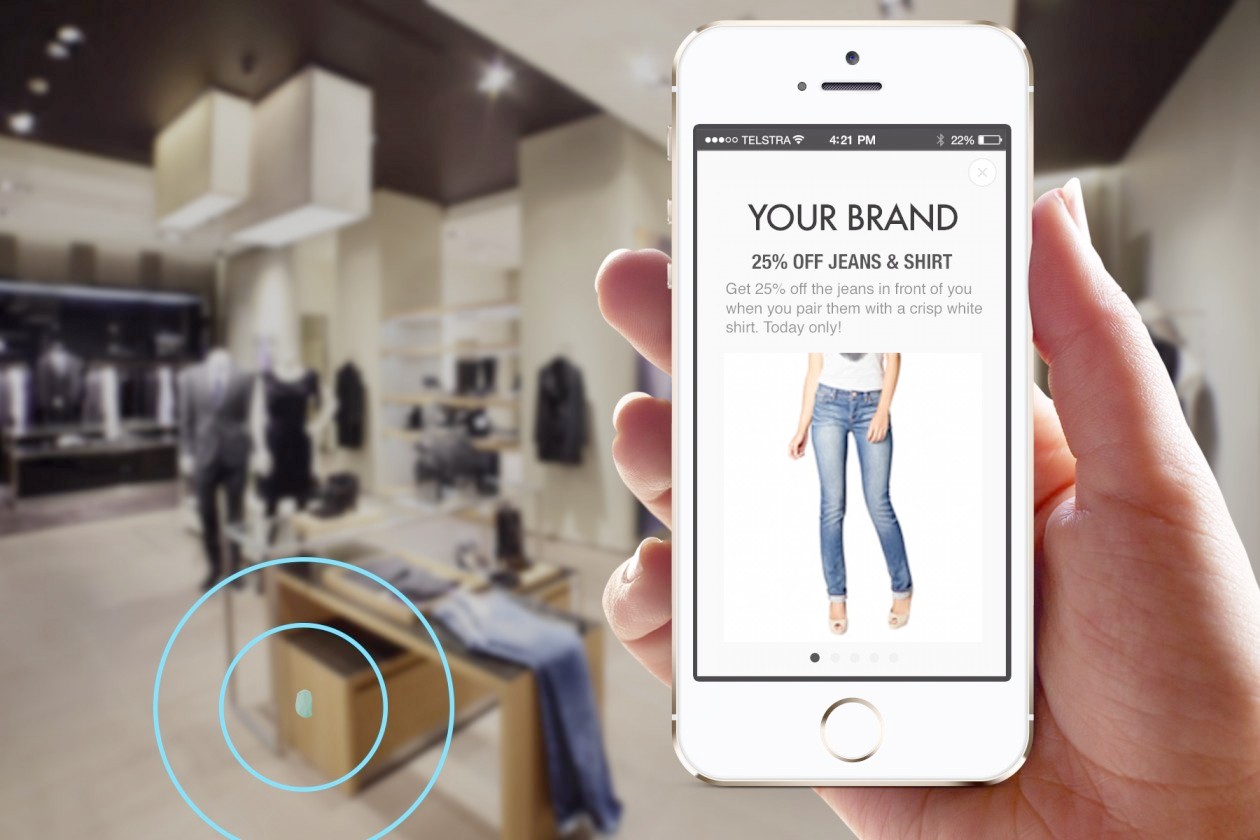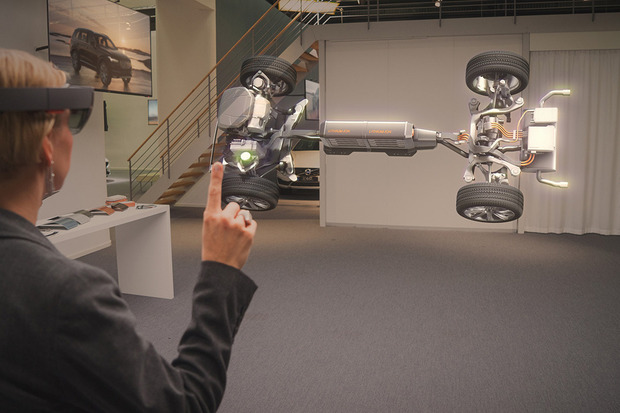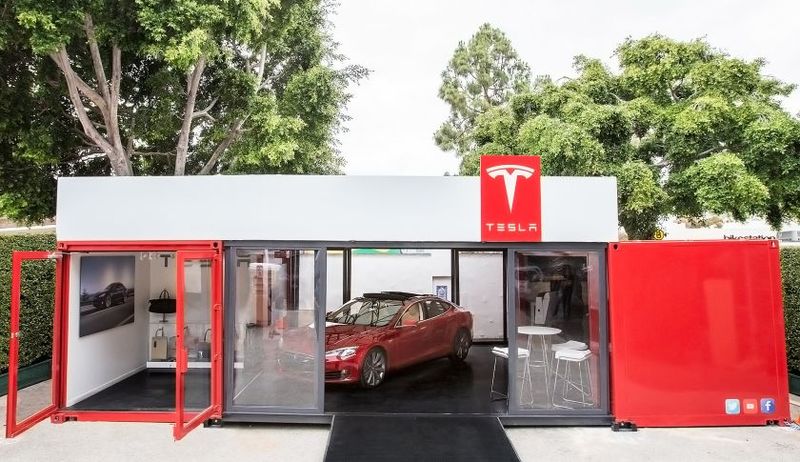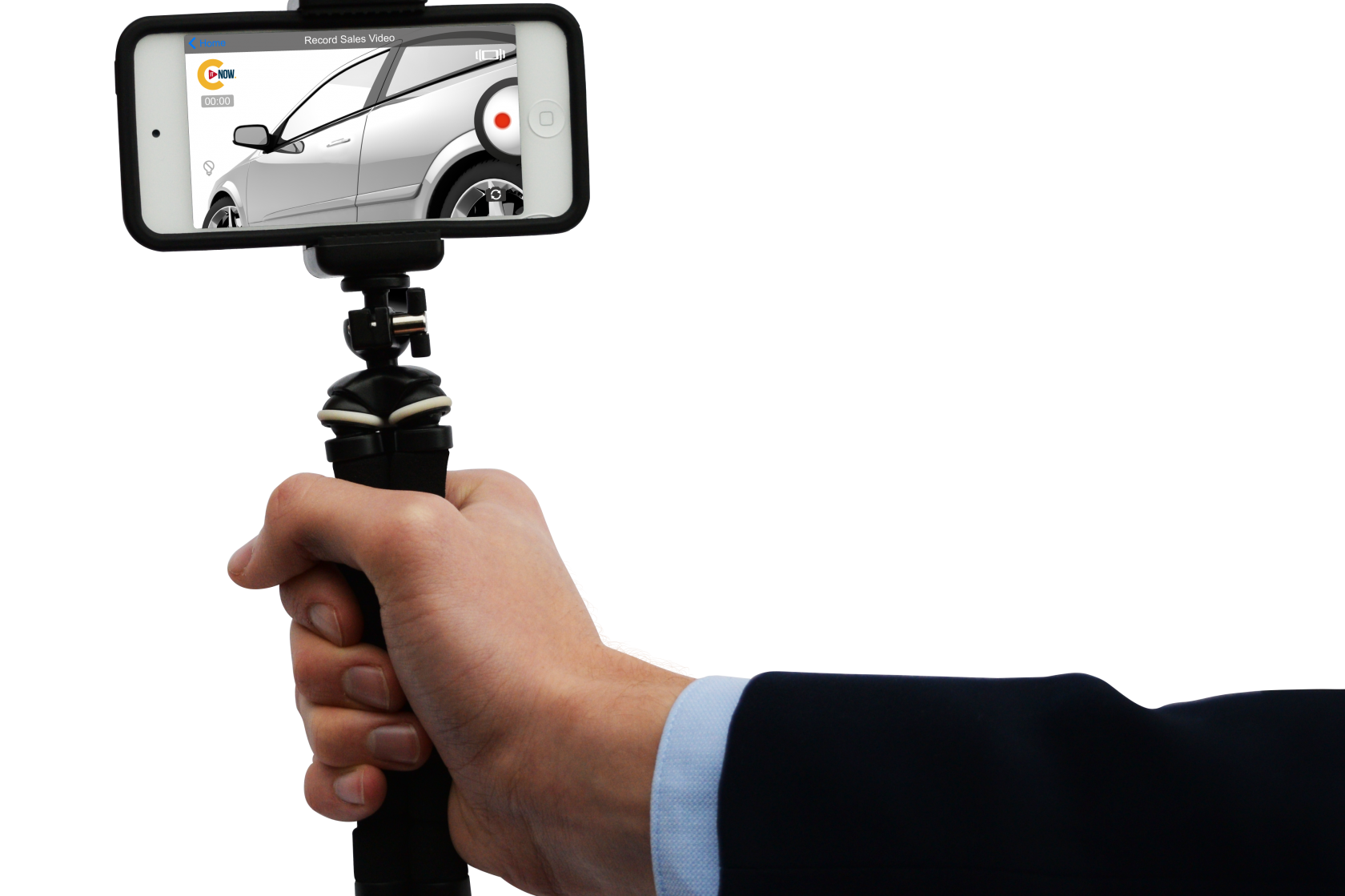8 ways that will change how we shop for a car in the future
With the advent of Amazon's one-click shopping and on-demand delivery, how is the automotive industry reacting to a more tech savvy consumer?
Technology is leading the way in the car consumer's buying experience, with 96% reporting use of the internet in the shopping process and 65% accessing data on mobile devices while at the dealership. Beyond this, here are 9 ways that the automotive industry is using technology to enhance the shopping experience .
1. The Product Genius
Today's vehicles are full of technological capabilities. BMW sales teams now include product geniuses, non-commissioned individuals who work with customers in explaining a model's features and benefits. They are available to spend as much or as little time as the customer likes to assure that they have a full understanding of a car's features. BMW is still experimenting with this role, and trusts the additional knowledge will help close additional sales.
Other brands are testing out the use of 'pre-sales executives' in their showrooms, whose selling approach is very much non-confrontational. Mirroring the Apple Genius, their dress code is less formal so that they are seen as more approachable and are highly knowledgable about the vehicle's gadgets, technology, music systems and in-car connectivity.
2. Electronic beacons/location messaging

iBeacon technology
Ford is set to launch a pilot program whereby strategically placed beacons in the dealership will provide additional information and even sales pitches to consumers once they have downloaded the relevant app.
These beacons can even be set to deliver messages when the dealership is closed. This programme is still in the development phase, but has been successful in other retail markets, such as department stores.
These beacons can even be set to deliver messages when the dealership is closed. This programme is still in the development phase, but has been successful in other retail markets, such as department stores.
3. Geo-location tools
Knowing the location of potential customers provides a competitive edge in the automotive sales space. A recent case study shows that roughly 55% of sales are generated by customers within a 5 mile radius of a given dealership, while 82% come from within 10 miles. Spending valuable advertising budget in these targeted areas could provide a greater ROI than general advertising over a broad area.
4. Holograms and virtual reality

A digital rendering of a user interacting with a drivetrain as part of Volvo's work with Microsoft.
In November last year, Volvo and Microsoft announced that they were partnering to create hologram based showrooms. Consumers don headsets that work with Microsoft's HoloLens program to interact with 3D images of car models and overlay images. Viewing car interiors or closely examining car components would be made possible through this technique. Virtual reality headsets and experiences are being tried in a number of applications, and have been successful to date in bringing 'flat' experiences to life.
Audi and Cadillac are experimenting with virtual reality car selling in their US dealerships and have seen sales increase at a record pace. Audi plans to rollout Oculus Rift headsets in their US dealerships at the end of the year. In addition to bringing in customers for the experience, dealerships can potentially save money by reducing new car stocking costs. Estimated savings in the US are projected at over $2 billion annually.
Image: Tobias Schwarz/AFP/Getty Images
Image: Tobias Schwarz/AFP/Getty Images

In 2014, Audi Ireland saw lengthy queues at their stand at the Dublin Web Summit where visitors could experience a race track simulation via one of the first Oculus Rifts in the country.
Image: pluto.ie
Image: pluto.ie
5. Loyalty programmes
As the popularity of loyalty programs in the retail sector increases, a number of car brands have successfully implemented loyalty programs at their dealerships. Consumers are rewarded with points for purchases of parts, services and accessories. These points can then be used towards future purchases or additional services. Dealerships that have instituted these programs attribute an additional 15 cars sold per month to the implementation of these loyalty programs.
Nissan has developed an app that is tied into its rewards program, combining the advantages of the program with mobile technology.
Nissan has developed an app that is tied into its rewards program, combining the advantages of the program with mobile technology.
6. Apps

A J.D. Powers study shows that the use of tablets in car sales presentations has a positive impact on customer satisfaction. Apps such as Carcode SMS provide a means for car shoppers to anonymously communicate with dealer salespeople while shopping online.
Apps such as Kahu, which provide diagnostic, safety and tracking data in real time, have increased in popularity as the interest in safety apps has grown by 35%.
Apps such as Kahu, which provide diagnostic, safety and tracking data in real time, have increased in popularity as the interest in safety apps has grown by 35%.
7. Pop-up shops

Tesla mobile container store
Tesla's recently introduced initiative, the Tesla Mobile Container Store cleverly creates a mini-showroom using converted shipping containers to showcase its Model S. The company plans to tour popular holiday spots in the US and Europe. Of course, Tesla sells directly to consumers, making this approach more in line with their sales process. By setting up pop-up stores in locations with heavy foot traffic, Tesla realised a 56% increase in Model S deliveries as compared to the prior year.

From an Irish context, the country's first virtual showroom was opened in the form of a pop-up shop in the Pavillions Shopping Centre, Swords. Linders Renault & Dacia opened up the shop in advance of the launch of their new showroom in North County Dublin.
“
The concept of the car store seems like a natural progression for us. In any business you need to innovate to survive and the internet has played a key part in revolutionising how Irish people shop for cars. We are in the process of opening our third dealership Linders Renault & Dacia Swords Turvey just up the road and in the process, we spoke to a lot of locals while deciding about where to open. While we knew that the area had a large and growing population for an outlet to service, we didn't foresee the number of people that told us they would be interested in seeing an alternative to the traditional garage in the area. So, we simply listened and when we thought about it, it made sense.
Within just one week of the launch of Tesla's first mass market car, the Model 3, pre-orders reached 325,000, about €12.5 billion in implied future sales, making it the single biggest one-week launch of any product ever (and that's without any advertisements or paid-for endorsements).
8. Video

CitNow
A recent study indicate the growing role of videos in the car buying process. 84% of respondents stated their intention to watch at least one video before purchasing a new car, with a 69% sales conversion rate.
Creating customised, experience-based videos for potential car buyers has been pioneered by Citnow, a UK based company specialising in sales focused video presentations and training which is utilised by several dealerships in Ireland.
Creating customised, experience-based videos for potential car buyers has been pioneered by Citnow, a UK based company specialising in sales focused video presentations and training which is utilised by several dealerships in Ireland.
The Future
Technology will certainly play an ongoing role in shaping the automotive marketing industry of the future. Beyond these tools, sophisticated consumers are increasingly drawn to a new type of car buying experience which provides exemplary customer service in a speedy, no-hassle environment. A valid comparison is a dealership experience incorporating key elements of the Apple store model.
Dealerships need to stay on top of new, creative techniques for making the showroom experience unique and memorable. Today's car buyer is more tech-savvy and sophisticated, and the sales experience should reflect that.
Dealerships need to stay on top of new, creative techniques for making the showroom experience unique and memorable. Today's car buyer is more tech-savvy and sophisticated, and the sales experience should reflect that.
"What is certain is that the car buying model of the past is no longer relevant and dealerships must adapt if they wish to stay competitive."
Share this article

